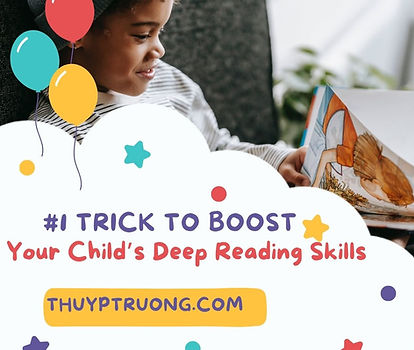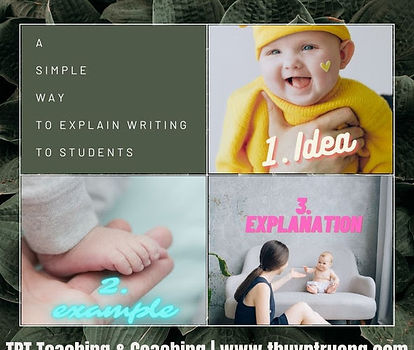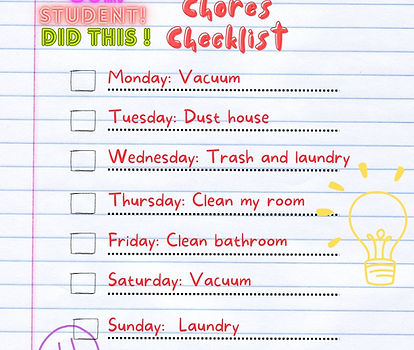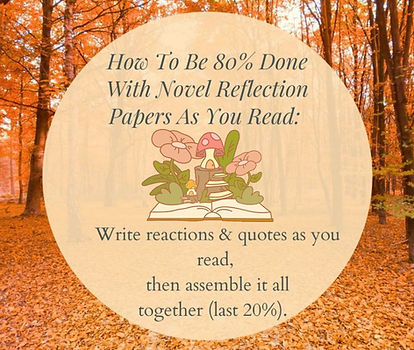TPT Teaching
and
Coaching
Partners & Certifications
Proud collaborator of and active engagements with the following educational platforms:



.png)
.jpeg)
.jpg)
Chat With A Certified Expert Who Can Meet Your Child's ADHD/LD AND Academic Hidden Needs Today!
408-757-1639, Book Free Now!
"TPT Teaching and Coaching is exceptionally unique. A beautiful support service indeed. You coach and speak from experience. It's very inspiring how you have a positive influence on my son. A delightful moment was when he said: “she instructs and encourages me to finish a very challenging paper.”
~Parent of a 12th Grader, July 2023

BRAIN HACKS
As a Certified Expert in ADHD and Academics, we specialize in creating brain hacks that meet students' and individuals' hidden needs. Enjoy the Daily Done (s) below, so your child can be Done! Done! And Done!
Doing Homework In Character
Research shows ADHD/LD students have an interest-based nervous system. For them, feelings are first, then assignments. So how do you meet this invisible need that's varied for every student?
Answer: You turn LARPing (Live-Action Role Play) into Harping which is a secret code word for Homeworking.
Instant Working Memory Boost Now
Immediately after you've taught your child a new skill, have them do it for you right away. It will increase memory retention and reduce The Forgetting Curve.
According to Hermann Ebbinghaus' research, our memory slowly expires as time goes by if we don't rehearse the memory's content thereby strengthening and crystalizing it to endure the test of time. Different memory rehearsal methods work for different learners. For instance, write out short summaries without looking at other notes, quiz yourself using flash cards, bullet out key information without relying on supplemental texts/books, and synthesize information into a thoughtful argument. From my almost two decades of teaching/coaching experience, for ADHD/LD students, memory retention's determinants often lie in a combination of memory rehearsal on paper and the act of physically doing the task itself.
Conquer Procrastination In 10 Minutes
According to Psychology Today, self-reflection helps us step out of our own head and self-evaluate our habits, which in the long run will help us with performance and task completion. “This awareness helps improve time management, planning, focus, and other skills that frequently challenge teens and adults with ADHD.”
The Daily Tracker
This is the number one way to teach students about metacognition (knowing yourself/self-knowledge). Self-knowledge leads to visually tracking daily goals, checking tasks off, and reflecting on one's previous actions for continuous improvement. Checking in with yourself is an academic skill and a life skill.
Coping With Dreaded Tasks
In The Student's Own Words:
"In the Conquer by Two method, you compare a task you currently have to do that you dread doing to a worse task that you will have to do as a result of not doing the current one. You can think of the worse task to motivate you to complete the current dreaded task, as, while you may dread doing the task, you dread doing the worse task more."
The Writing Model That Works Every Time
Research shows that executive functions contributed both directly and indirectly to narrative composition/writing (Drijbooms et al., 2015). As a Certified Classroom English Teacher with 18 years experience, I believe students need to see the big picture [Idea, Example, Explanation] before they write, so they will have a good foundation to rely upon and make connections more easily between the different stages within the writing process.
Always Weigh It, Before You Start It
It's not enough to find an open slot in your calendar and squeeze a task in there. What if you sit down and find out you have 50 pages to read but you're only free for 2 hours? That's not realistically enough time to get the job done.
Always remind yourself in advance: divide how much work you have by the days you have left to get it done [the earlier the better]. For Example: 50 pages to read divided by 5 days equals 10 pages a day. That's how you can avoid unnecessary stress and keep your mental energy high.
Best Practices For Your Child's Cognitive Flexibility
Research shows switching tasks/plans prove to be more challenging for ADHD students than their non-ADHD peers (Cepeda et al., 2000). That's why it's valuable for ADHD/LD students to know in advance what they should do when difficult situations arise. Using a flow chart as a visual cue and memorization tool, it will help your child remember the routines easily and it will save you time by using a pre-made teaching tool to train your child.
You Are A T-Chart Away From Changing Your Child's Behaviors
You Are A T-Chart Away From Changing Your Child's Behaviors. How?
-
Search YouTube for short videos about self-discipline (Time Management, Organization, Homework Routines) and watch it together. Make sure the people in the videos are about the same age range of your child's. Peer perspective is powerful.
-
Let your child reflect by listing out how their routine vs. the other person's are same and different.
-
Ask your child to pick 2 things from the video that they'll try out each week.
Anti-Procrastination Analogy That Works For High Schoolers
The easiest way to explain and convince high schoolers to start tasks and avoid procrastination is using the swimming analogy. When you first dip your little toes into the ocean water, it often feels really cold. But once you dive into the water with your whole body wet, the initial coldness suddenly vanishes and you feel great.
Well, starting tasks is the same. It may feel difficult to start at first, but don't back out, instead power through and before you know it you're already half way done with the task. Try this summer-filled and ocean-oriented analogy with your teen today, it may even work better if your teen already has a love for water sports, hence the interest is already there! Feel free to make up new analogies that align with your student's specific interests. I like analogies because it's short, easy to remember, and ADHD-friendly due to novelty. My student had found this analogy helpful this week! Yay! Music to a coach's ear.
An Easy Way To Sneak Organization
Into Your Child's Day
To help your child learn organization and sustain attention, always begin homework time with Today’s Goals. Reference it again once work is done to celebrate & incentivize next time. Due to working memory limitation in students with ADHD/LD, repeated practice helps immensely in making the skills automatic over time.
Invisible Sources That Drain Your Child’s Executive Function Fuel Tank
International ADHD expert, Dr. Russell Barkley, said the executive function fuel tank is a finite resource. Yet, it is so easy for our students to go through the entire day without stopping to think how their silent tendencies affect their mental as well as physical energy. Once you help your child pause and reflect, you can empower your child to be more in control of their overall well-being and maintain their executive function fuel tank.
College Essays And Applications
.jpg)
Student Perspective:
“I learned that, in writing a college essay, it is important to make sure that you integrate concrete examples in your responses to the prompt and convey a message through your response to show your character to those reading it. When starting out, you should outline the essay first, then give yourself some time to freely write out the rough draft of the essay and get out your thoughts. Afterwards, you can go back and edit the essay to incorporate higher-level vocabulary and more creative uses of language.”
~12th Grader, Sept. 2023
Memory Rehearsal Tool
Long-term memory is not ready-made. Daily memory rehearsal by explaining big concepts in your own words is required because it will deepen the seeds of knowledge into our long-term memory. And Cornell Notes' structure is the easiest way to achieve permanent memory (with consistent practice, that is) as research shows handwritten note takers perform better on conceptual exams than laptop note takers.
How To Be 80% Done With Novel Reflection Papers As Your Child Reads
ADHD/LD students often struggle with breaking larger goals into its hierarchical parts (Russell Barkley), especially large writing assignments. Well, there's a way to help your child get 80% done with novel reflection papers AS THEY READ.
The Scientific Way To Free Up Your Time and Energy
The most productive time in the day is defined as the small time window where you feel alert, mentally energized, focused and highly motivated to do academic or professional work. A new survey had revealed for most office workers, it's around 10:22 AM, but they would hit a lull at 1:27 PM. Because ADHD individuals have a different nervous system and a varied sleeping pattern, the peak productivity time for each individual with ADHD will be different. Try working mentally challenging tasks in the morning, afternoon and then early evening, then compare your focus and productivity level during these three times and see which serves your highest good. Test driving in real-time is solid proof.
And when you have found your peak performance time, make sure you do the most cognitively demanding tasks during this time window. You'll feel lighter since it will free up your energy and time. Crack the code today!
How To Do Fast Handwritten Note-Taking?
Note-taking is a critical skill for academic and career success. Due to executive dysfunction and written expression difficulties, students with ADHD may struggle with note-taking skills oftentimes. Using diverse symbolism and visual representations may help ADHD/LD students begin to take notes with confidence to stimulate higher engagement in classes and/or other academic discourses.
Increase Your Child's Essay Writing Pace With Voice Typing
For college students, Tis The Season for writing final papers. The one tool that may speed up the writing process may be voice typing via speechtexter.com or voice typing in Google Docs (click Tools > Voice Typing). Try today, get your writing jingle bells on and sleigh all the way to the finish line. Good luck!
Attack Tasks So Fast That...
Tis the season to hack procrastination as academic assignments/professional projects often escalate before the holidays break for college students/professionals.
Procrastination Hack:
Attack tasks so fast that you don’t have time to back out. Email form? (complete & send now), 5 min from library (get those research books now), grocery shopping? (jot 3 bullets for your paper outline in phone).
Writing Structure (Middle School)
Research shows oftentimes students with ADHD/LD's struggle with written expression. This compounded with working memory deficits can make a student feel stuck while writing. So, how do you help students learn instant writing structure to anchor their understanding and writing repertoire?
Two Productivity Structures Your Child Secretly Needs
Research shows that executive dysfunction often affects students with ADHD/LD's in homework management, specifically organizing, planning, and following through. This also means students oftentimes don't know where to begin when it comes to creating self-management structures that would boost their productivity and get them to the finish line efficiently. There are primarily two productivity structures that your child secretly needs: Calendar Checkpoints and Visual Checkpoints.
Changing Your Child's "Should" To "I Want To"
According to the literature, 61% of students still display ADHD symptoms even when on medication (Abikoff, 2009). Research also shows decision-making is hard for students with ADHD, so they often resort to impulsivity to escape the decision-making process. Poor decision-making lends itself easily to procrastination. However, decision-making is a critical skill for task initiation and completion as one has to "choose" to proceed with one thing over the other. Explore how you can change your child's "should" to "I want to."
Creating And Maintaining Your Child’s Working Memory For Writing
Did you know that the act of writing requires a host of executive function skills such as working memory, organization, time management, sustained attention and many more executive skills? In all of this, working memory gets the golden crown as the most critical component in academic writing. So how can you help your child create and maintain working memory specifically for written expression? Create visual imprints (based on student's intellectual bent) for memory internalization with repeated practice (example above).
What Time Should I Leave The House?
What time should I leave the house? Or What time should I get ready?
Easy Time Estimation Formula:
Arrival Time (- Minus) Invisible Time = Starting Time
Example:
Arrival Time: Let's say your Psych 101 class starts at 9:15a
Invisible Time: Drive (30 min), Shower & Get dressed (30 min), Breakfast (30 min). Walk from parking lot to campus (15 min)
Start Time: 9:15a minus 1 hour 45 min (round up to 2 hrs) = 7:15am is the time I should start getting ready.
Writing Super Tools
Due to working memory limitations, writing can be challenging for students with ADHD/LD's. Two tools that may help to move your child along while writing are, an idea list and/or a related vocabulary list. These cognitive-reflective tools will help the student with idea origination and sentence formulation.
How To Explain Writing Creativity To Younger Children?
How To Explain Writing Creativity To Younger Children?
What's ice cream without the toppings and cherry on top? Pretty boring, "bland," to use my student's word. So remember to add ice cream toppings when you write and have fun while becoming a creative and intuitive writer with a unique flair and flavor.
Always Round Up
ADHD research suggests students with ADHD/LD often experience the challenge of "persistence into the future" (Russell Barkley). Help your child practice rounding up time to prepare for things can go wrong and always plan for the future to avoid unnecessary stress. The trick is always round up and not round down during time estimation.
Movie What They Read
.jpg)
According to research, the most common co-existing condition with ADHD is dyslexia. However, the most common academic challenge I have seen as a certified classroom teacher for over a decade is reading comprehension. Help your child movie what they read (activate the imagination)and you will see their eyes light up and light bulbs go off.
Foolproof Productivity Hack!!!

Foolproof Productivity Hack!!!
Get Any Tasks Done With Just 3 Tools:
Calendar It.
Stopwatch It.
Streamline It.
The Power Of A Timer
.jpg)
According to Harvard University, "students who are mentally alert are better equipped to engage in the learning experience" (Thorne & Thomas, 2009).
Also, [research shows] "the behavior/performance of individuals with ADHD significantly improves when tasks are made to be more salient, novel, interesting, or stimulating" (Morsink et al., 2022).
Help your child finish tasks and internalize executive function skills faster by using a stopwatch. Say: let's see if you can beat last time's record and time her as she does the task.
Start timing your child towards independence today!
The Easiest Way To Teach Your Child Prioritization
.jpg)
Start your child on a simple organizational and time management routine by using the Do Now, Do Later checklist (laminated or wall calendar, your pick, but repeated structure is key). Small steps bring big changes over time. Soon, you can step back and let them take over.
Making Writing Easier To Remember In Video Games' Language
The literature shows writing is often challenging for ADHD/LD students due to strong requirements for executive function and high cognitive load for students. However, translating writing into a familiar language to students make it easier to understand and apply.
The 1-2-3 Of Asking For Help
A very quick way to show your child how to ask for a teacher's help. Then, turn it into a life skill by using this visual memory every time your child practices self-advocacy in any situation. If your child forgets, just show him/her this chart (it will save you time!!!).





.jpg)
.jpg)
.jpg)
.jpg)
.jpg)
.jpg)
.jpg)
.jpg)
.jpg)
.jpg)
.jpg)
.jpg)
.jpg)
.jpg)
.jpg)
.jpg)
.jpg)
.jpg)
.jpg)
.jpg)

.jpg)

.jpg)

.jpg)


.jpg)
.jpg)


.jpg)
.jpg)